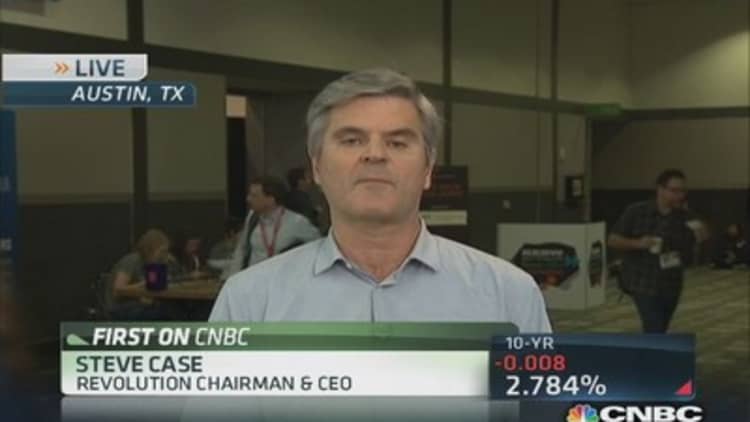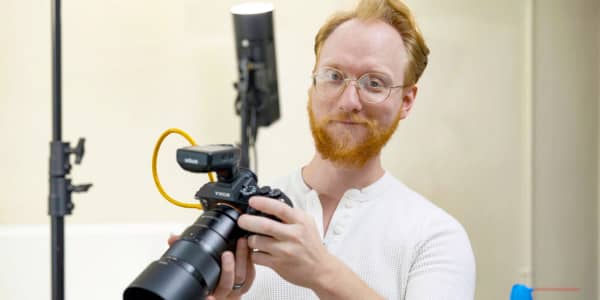Steve Case, 55, the iconic founder of America Online, a digital media company now known as AOL, has a bone to pick with today's entrepreneurs.
Too many modern start-ups, he said, are built with the sole purpose of being sold or flipped within a few years. While there's certainly nothing wrong with a cash grab, he noted, we're at a point in time where there are big problems to be addressed—such as health care and education—and to really make a difference in the world, you need to think long term.
"Pick a big problem and take a long-term view," he said. "I think our society benefits more if you're talking about taking on bigger problems and taking a longer term, 10-year view and not thinking it's going to be an overnight success. ... It may be hard and may take time, but if they're successful, the impact they can have on society is more significant, and the potential to build a most sustainable, iconic company is more significant."
Case, of course, knows a few things about building an iconic company. At its peak, AOL had more than 30 million members worldwide and is largely acknowledged as one of the pillars that made the Internet accessible to the general public. Reaching that level of success wasn't easy, though, and it took a long time before Case could even try.
The entrepreneurial journey of Steve Case started when he was roughly 10 years old. He ran a variety of businesses, ranging from paperboy to door-to-door greeting cards salesman. As a teen, he helped to promote music concerts.
"I didn't know what an entrepreneur was," he said. "I just knew it was fun to create these interesting businesses. ... I was probably perceived by my parents as outside of the normal interests. I was interested in things that were a little more on the fringe."
Read MoreHow I got Steve Case to invest in Sweetgreen
By the time he was a senior in college, his interests were leaning toward technology and computer networks—but in 1980, there weren't a lot of places to pursue this interest, and he ended up working at Procter & Gamble, followed by a stint at Pepsi.

Three years later, he found himself in Tysons Corner, Va., founding a start-up called Control Video Corp. Home personal computers at the time were rare, but Atari game consoles were widespread. CVC hoped to exploit those using a product called GameLine: an interactive cartridge for the game system that allowed people to download games and (eventually) provide news, stock quotes, sports scores, electronic mail and more.
A good idea, given the computer hardware situation at the time, but one that failed when Atari collapsed right as GameLine hit the market. Case and two of his co-founders rebounded, though, and went on to found a new tech venture that would become known as AOL.
It was a gamble. At the time, only 3 percent of the country was online, and only for an hour a week. Case and company thought they could change that.
"Our bet was it was going to be about people," he said. "The killer app was community. And at the time, competitors like Compuserv focused on content. ... Now, of course, what we referred to as community is the same as social media. So it's not surprising that some of the hottest new companies are basically in the community business."
Selling the vision
The trick was convincing investors. While some of the people who backed GameLink came on board, many thought AOL was doomed to fail. Over the next seven years, AOL raised just $10 million from venture firms, including Alan Patricof of Apax Partners. That came at a time when Sears-backed Prodigy had committed to spend $1 billion to build out its business.
The company faced the same skepticism as it prepared to go public. But when shares began trading on March 19, 1992, they jumped 28.3 percent. (By March 1999, AOL shares had risen to nearly 700 times that amount when stock splits were factored in.)
"We'd been at it for seven years and had something like 183,000 customers and $30M in revenues, so most people were saying, 'It doesn't seem like it's catching on,'" said Case. "But enough people bet on the idea, and the road show sold the idea. Thankfully, a decade later we had, like, 30 million customers and $5 billion in revenue."
Building the business to that point took some maneuvering. With no money to market itself, AOL spent its first five years doing private-label services for computer manufacturers—PC Link for Tandy, QLink Commodore, AppleLink for Apple and Promenade for IBM. And it had to aggressively lobby those manufacturers to include the necessary hardware to access those services.
"We had to convince each of them that we were essentially creating a custom service for them and their buyers," said Case. "It took us five years to get those PC manufacturers to believe enough in the idea that they [began] building modems into PCs. Most of them said, 'Why would we add this communications device when so few people are using it?'"
At the same time, AOL had to partner and work with Internet providers (like Sprint) to lower network costs so more people could afford to hop online and explore the Internet.
Vision without execution is hallucination.Thomas EdisonCase's motto
"The first decade," he said, "was a lot of blocking and tackling."
AOL, of course, has had its share of ups and downs since then. The $350 billion merger with Time-Warner is often cited as the worst corporate marriage of all time. But the company is still going strong, with an employee base of roughly 5,000 people. Its revenue has fallen from that $5 billion peak to a still respectable $2.32 billion.
Meanwhile, the Internet that Case helped popularize is under scrutiny once again, with the issue of privacy at center stage. Facebook posts can come back to haunt people years later, and the NSA scandal has many people wondering what they're sacrificing for the convenience of the online world.
Case said he sees that as an opportunity for today's young entrepreneurs but also notes a lot of the responsibility lies with consumers.
"Every stage of the Internet has had that dynamic: How do you maximize the benefits while minimizing risk?," he said. "Privacy is just the next iteration of that. There are a variety of start-ups focusing on this: How do you offer people more secure communications. ... Users have to understand the implications and have some ability to influence how much of the benefits of these new apps you want to take advantage of, and how much of the risk you're willing to accept."
Lessons Learned:- Success requires three things: Passion, perseverance and people. If you've got those going for you, you're unstoppable.
- Revolutions take place in an evolutionary way.It's important to learn from the past and celebrate the past, but it's much more important to lean into the future.






